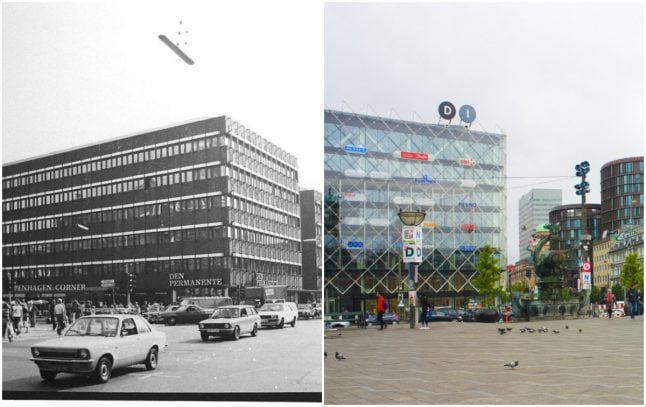You can see the photos below and compare them with how the locations look today.
READ ALSO:
- Photos of Denmark in the 1970s – and how the same places look today
- 10 photos of Denmark in the 1950s and 1960s – and the same spots today
Industriens Hus, Copenhagen, 1980
The building on the busy corner opposite Copenhagen's City Hall Square has been replaced a number of times of over the years.

Photo: Henning Thempler / Ritzau Scanpix
Protest, 1986
Former prime minister Anker Jørgensen stands outside the United States Embassy in Copenhagen giving a speech in protest at nuclear testing at the Bikini Islands.

Photo: Mogens Ladegaard / Ritzau Scanpix
Pub, 1980
Frederiksberg's Vinstue 90 almost 40 years ago.

Photo: Erik Holmberg / Ritzau Scanpix
Nørreport Station, Copenhagen, 1980
The air vents can be recognized in this old picture of Nørreport Station, but much of the area has been rebuilt.

Photo: Steen Jacobsen / Ritzau Scanpix
Cyclists, 1980
Cyclists on their way to a protest at Christiansborg in central Copenhagen.

Photo: Mogens Ladegaard / Ritzau Scanpix
Christiania, 1989
A police raid at anarchist enclave Christiania.

Photo: Claus Bjørn Larsen / Ritzau Scanpix
Printers' action, 1981
Print workers demonstrate at the offices of Fyns Amts Avis, Svendborg, 1981.

Photo: Ritzau Scanpix
Aarhus, 1985
The rail terminal in Aarhus as it appeared in the mid '80s. The angle is somewhat different in the Google image.

Photo: Erik Jepsen / NF / Ritzau Scanpix
Porn shop, Vesterbro, Copenhagen, 1980
A shop which once sold pornographic movies is now a vintage clothing store.

Photo: Henning Thempler / Ritzau Scanpix
READ ALSO: Ten historic pictures that show life in Denmark decades ago



 Please whitelist us to continue reading.
Please whitelist us to continue reading.
Member comments